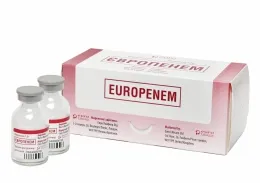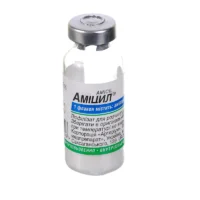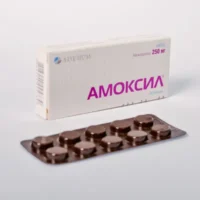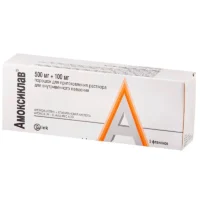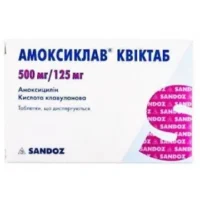Description
Evropenem (Meropenem) Powder for Solution for Injections 500 mg. №10 Vial
Composition:
Each vial contains 500 mg of Meropenem as the active ingredient.
Mechanism of Action:
Meropenem works by inhibiting the synthesis of bacterial cell walls, ultimately leading to bacterial cell death.
Pharmacological Properties:
Evropenem exhibits broad-spectrum antibacterial activity against both Gram-positive and Gram-negative organisms. It is classified as a carbapenem antibiotic.
Indications for Use:
Evropenem is indicated for the treatment of various infections caused by susceptible bacteria, including intra-abdominal infections, skin and soft tissue infections, and pneumonia.
Contraindications:
Avoid using Evropenem if you have a known allergy to Meropenem or any other beta-lactam antibiotics.
Side Effects:
Common side effects of Evropenem may include nausea, vomiting, diarrhea, headache, and injection site reactions. Serious side effects are rare but can include severe allergic reactions and Clostridium difficile-associated diarrhea.
Usage Instructions:
The typical dosage for adults is 500 mg to 1000 mg administered every 8 hours via intravenous infusion over 15 to 30 minutes. Dosage adjustments may be necessary based on the severity of the infection and renal function.
Benefits Compared to Analogues:
Evropenem is preferred in the treatment of severe infections due to its broad-spectrum activity and effectiveness against multidrug-resistant bacteria, making it a valuable option in critical cases.
Suitable Patient Groups:
Evropenem can be used in various patient populations, including adults, children, and the elderly. Dosage adjustments may be needed in patients with renal impairment.
Storage and Shelf Life:
Store Evropenem vials at room temperature between 20°C to 25°C (68°F to 77°F). Protect from light and moisture. The shelf life of the product is as indicated on the packaging.
Packaging Description:
Evropenem is available in vials containing 500 mg of Meropenem powder for reconstitution. Each package contains 10 vials for injections.
Clinical Evidence and Proven Effectiveness:
Studies have demonstrated the efficacy of Meropenem in treating severe infections caused by various bacteria. Clinical trials have shown favorable outcomes and safety profiles for Evropenem in the management of complicated infections.

